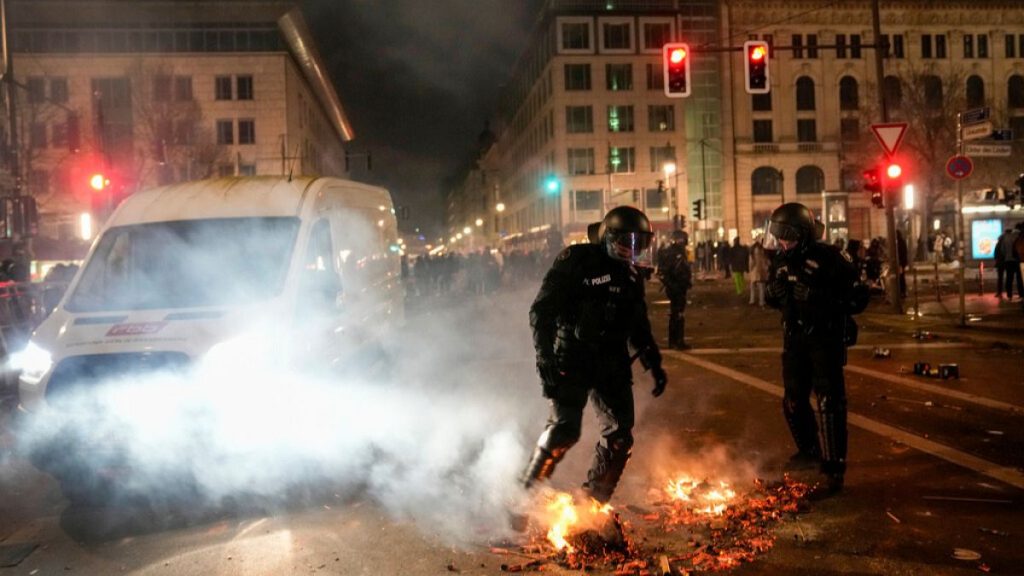The exuberance of New Year’s Eve celebrations in Germany was tragically marred by violence and reckless behavior, leaving five dead and hundreds arrested. The widespread use of illegal fireworks, particularly “kugelbomben” or bullet bombs, contributed significantly to the high number of injuries, prompting calls for stricter regulations and harsher penalties for offenders. The severity of injuries sustained this year was notably higher than usual, with even young children requiring treatment for serious firework-related wounds. This escalation in the destructive power of fireworks, fueled by readily available illegal imports, has become a growing concern for authorities and medical professionals alike.
The incidents underscore a worrying trend of escalating violence during New Year’s Eve festivities. While the use of personal fireworks is legally permitted for a limited time around New Year’s Eve, the readily available illegal fireworks, often procured from neighboring countries, pose a significant threat. The ease of access to these dangerous explosives through online platforms and lax border controls exacerbates the problem. This year’s events have highlighted the urgent need for more effective measures to curb the influx and use of illegal pyrotechnics.
The fatalities reported across Germany, largely attributed to prematurely exploding homemade or illegal fireworks, emphasize the inherent dangers associated with unregulated pyrotechnics. The tragic death of a 21-year-old in Brandenburg, currently under investigation for potential involvement of illegal fireworks, exemplifies the fatal consequences of such recklessness. These incidents reinforce the need for increased public awareness campaigns on the safe handling of fireworks and the potential dangers of illegal pyrotechnics.
Beyond the dangers posed by fireworks themselves, the targeting of emergency personnel with these explosives has emerged as a disturbing trend. In Berlin alone, over 400 individuals were apprehended following confrontations and attacks that injured 30 police officers. Reports of similar attacks targeting emergency responders surfaced in other major German cities, including Hamburg, Leipzig, Kiel, and Cologne. This deliberate targeting of those tasked with maintaining order and providing assistance represents a serious escalation of violence and a blatant disregard for public safety.
The escalating violence and targeted attacks against emergency personnel have sparked outrage and calls for stricter legal repercussions. Officials have condemned the “brutalization” witnessed on New Year’s Eve and are demanding tougher penalties for those who endanger the lives of police officers, paramedics, and other first responders. Proposals include extending prison sentences for individuals who deliberately lure emergency personnel into dangerous situations, demonstrating a determination to address this growing threat with decisive action.
The incidents of this New Year’s Eve serve as a stark reminder of the need for a multifaceted approach to address the underlying issues contributing to the escalating violence and reckless use of fireworks. Strengthening border controls to curb the influx of illegal pyrotechnics, coupled with harsher penalties for those who misuse fireworks and target emergency personnel, are crucial steps. Furthermore, fostering greater public awareness of the dangers associated with illegal fireworks and promoting responsible firework usage can contribute to a safer and more peaceful New Year’s Eve in the future. The tragic events of this year underscore the urgency of implementing effective measures to prevent similar occurrences in the years to come.










